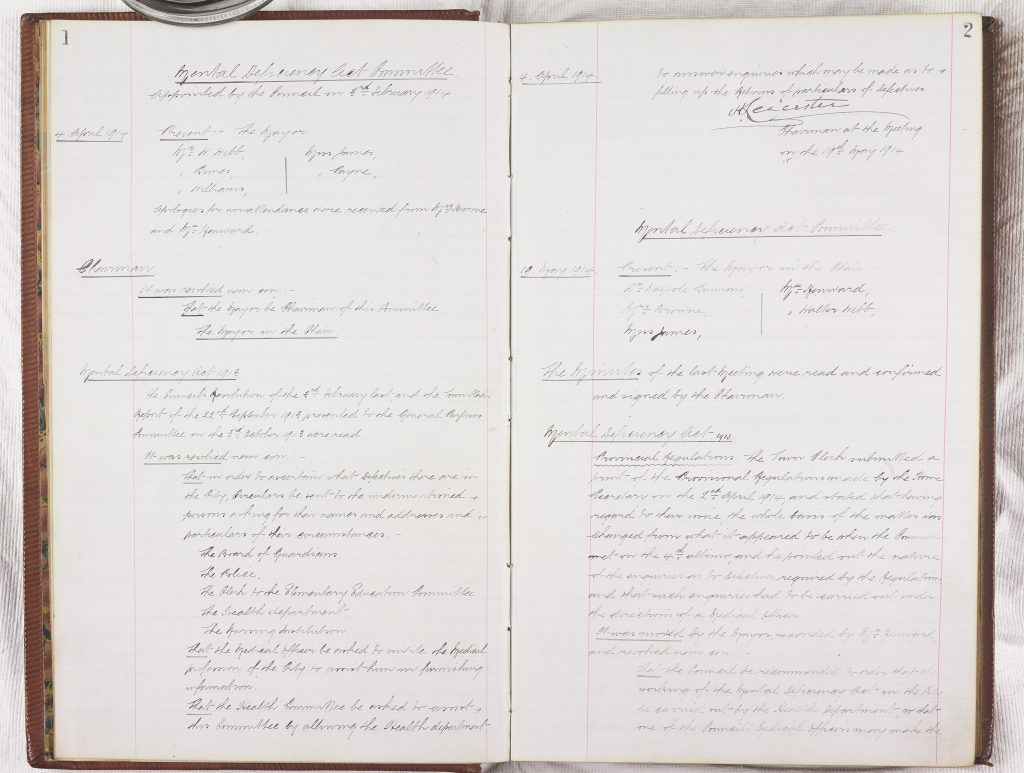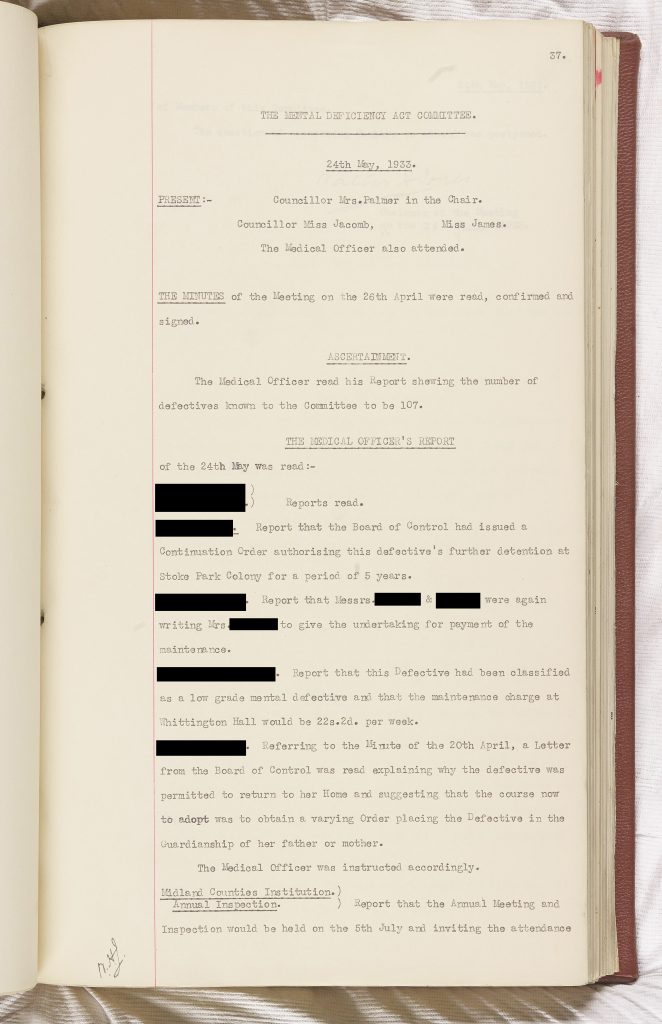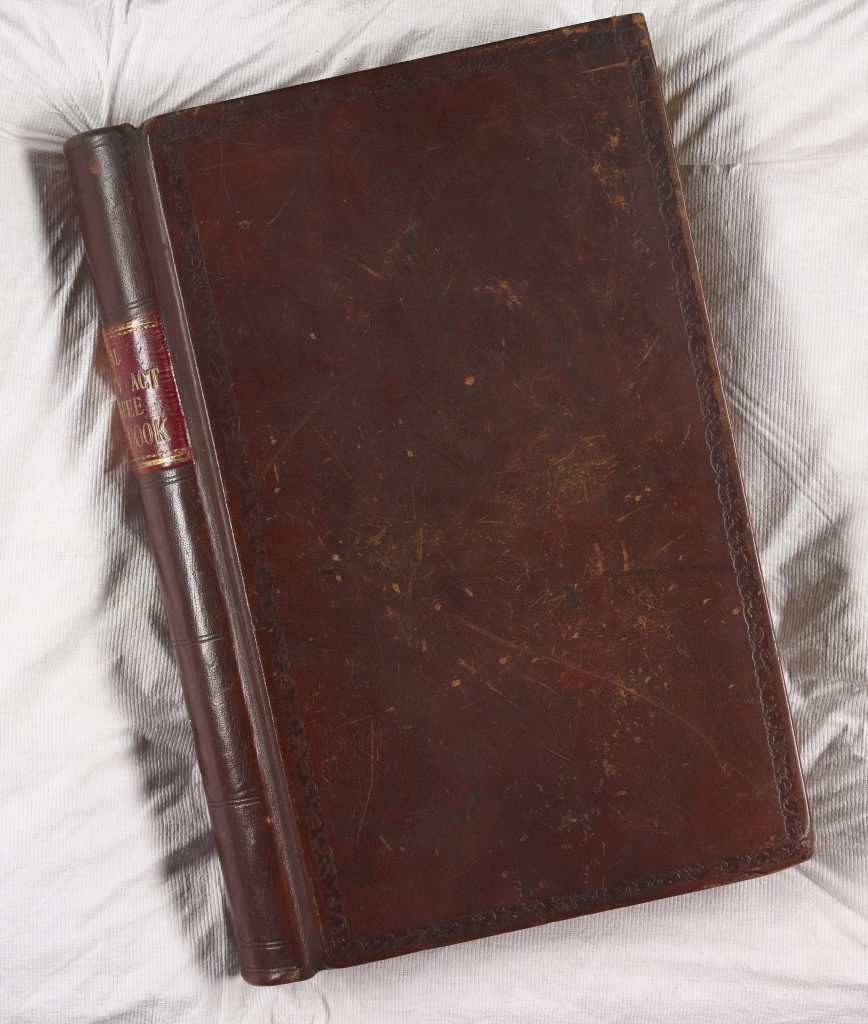Documenting Disability & Mental Health
- 2nd December 2022
Disability can be hard to find in an archive. Not least because Disability Studies is a relatively new discipline, and while some documented disability in their records, many did not. That being said, disability hospital and mental health records are a strength of the collection here at Worcestershire Archive and Archaeology Service; details of a significant number of people in Worcestershire who lived with some kind of mental impairment. Bear in mind, however, that many of the terms used in these historical records are now considered offensive – and rightly so.

Mental Deficiency Act Committee, Volume 1, 1914 – 1931: 496.5, BA11241
The 1913 Mental Deficiency Act proposed the institutional separation of ‘mental defectives’ from society. It established ‘colonies’ – specialist facilities and general institutions created under the auspices of the Act to house individuals defined as ‘idiots’, ‘imbeciles’ and ‘feeble minded’. The Act repealed the equally inappropriately named ‘Idiots Act’ of 1886 and remained in effect until 1959 when it was itself repealed by the Mental Health Act. It required that all Councils established Mental Deficiency Act Committees. Three volumes of minutes of the Worcester Committee spanning 1914 to 1948 are held in our collection.
Consisting of eight members of the City Council, the Committee, chaired by the Mayor, was responsible for identifying individuals living in Worcester who fell under the Acts’ remit of mental or morally defective – and finding and maintaining suitable accommodation for them. ‘Morally defective’ was a broad category that included unmarried mothers and violent criminals. Those who were institutionalised lived in asylums, workhouses, schools, laundries, convents, prisons, and hospitals, and appear most frequently in the minutes. Others were placed under the care of paid guardians or remained with family members who received allowances to care for them. Children as young as fourteen were sent to ‘colonies’ as far away as Bristol, Surrey and Kent.

Mental Deficiency Act Committee, redacted BA11241. Vol 2 Page 37
The minutes, dated every six weeks, discuss medical, education and justice reports, communications and financial matters relevant to the Committee’s functions. The bulk concern individual cases brought to their attention and any subsequent action that was taken. The attitudes and terminology used reflects how disability was referred to and thought about in the past by many.
Reference is also made to parliamentary debates regarding legislation and other Acts, including ‘on the subject of sterilisation’ (Volume 1, 25th March 1931). The Sterilisation Bill of 1931 aimed to legalise the ‘voluntary’ sterilisation of ‘mental defectives’ – inviting those with disabilities to undergo an operation that would prevent them from having children. Other issues surrounding the treatment and care of disabled persons, including neglect at the hands of institutional staff, are recorded in the minutes; with reference made to the various outside organisations and charities who monitored this. In compliance with the 1913 (and later 1927) Act, the Committee would advise the Council on suggested treatment following the advice of medical practitioners, guardians and/or relatives.
Thankfully today, we are more compassionate and understanding of the challenges faced by people living with disabilities. Every year in the United Kingdom, November and December mark Disability History Month, which honours the history of disabled peoples’ struggle for equality and human rights. Now in its 29th year, International Day of Persons with Disabilities on the 3rd of December is a celebration of disability inclusion that raises awareness of the current realities faced by members of disability communities.
Archives can be a valuable resource for understanding the history and representation of people with disabilities. The Mental Deficiency Act Committee’s minutes provide an insight into the use of language at the time and how things have, or have not, changed. Archive professionals can’t change what was written in the past, but we can change the way we write about these records in the present and future – shedding light on important issues and recognising the contribution of groups to society.

Mental Deficiency Act Committee BA11241. Vol 1 Front
Disability History Month 2022 runs from Wednesday 16th November to Friday 16th December.
The Mental Deficiency Act minutes books are available to research; however, permission is required from the creator or individuals as large parts of this record are closed to the public. Contact us – Worcestershire Archive & Archaeology Service (explorethepast.co.uk)
Post a Comment